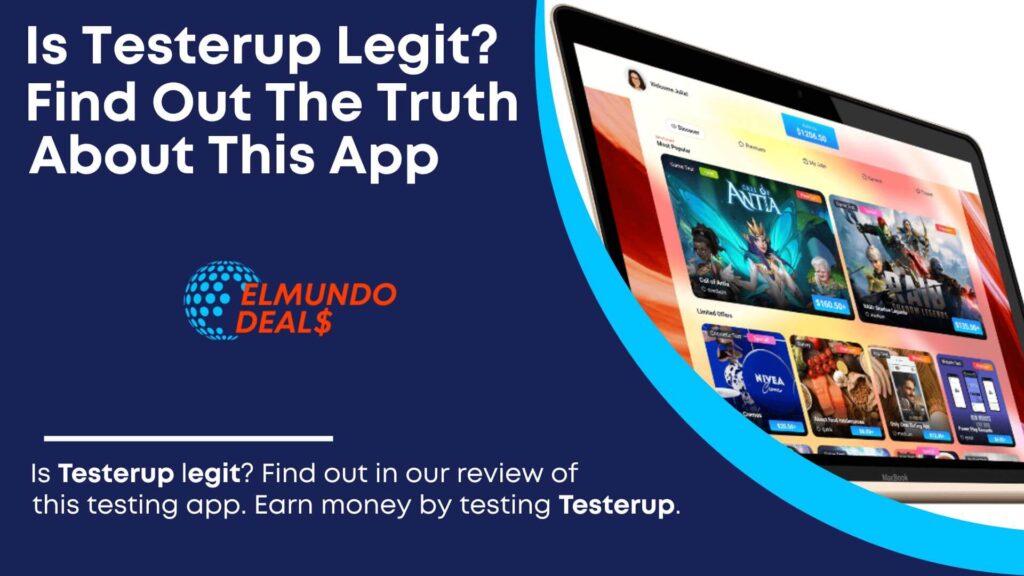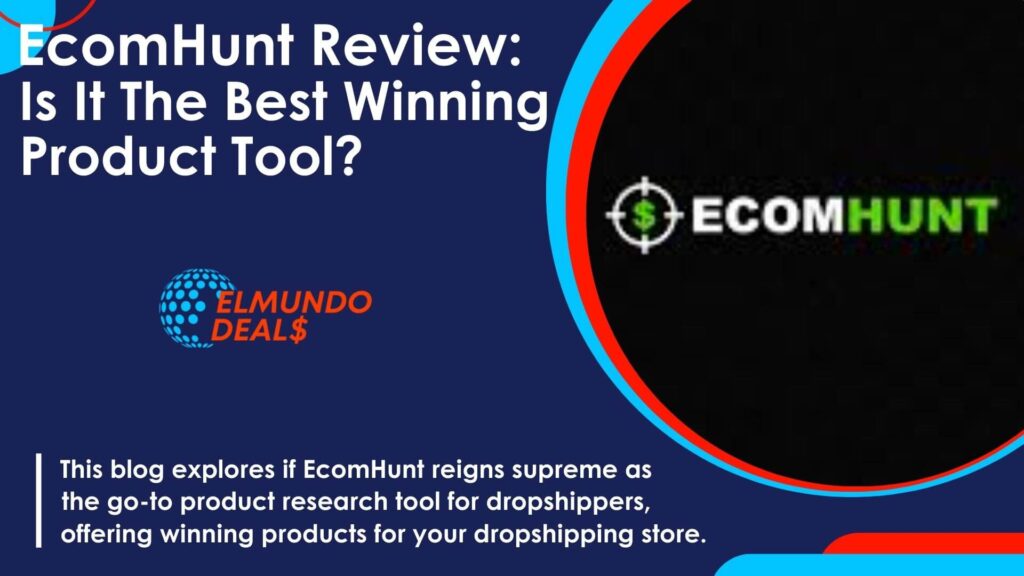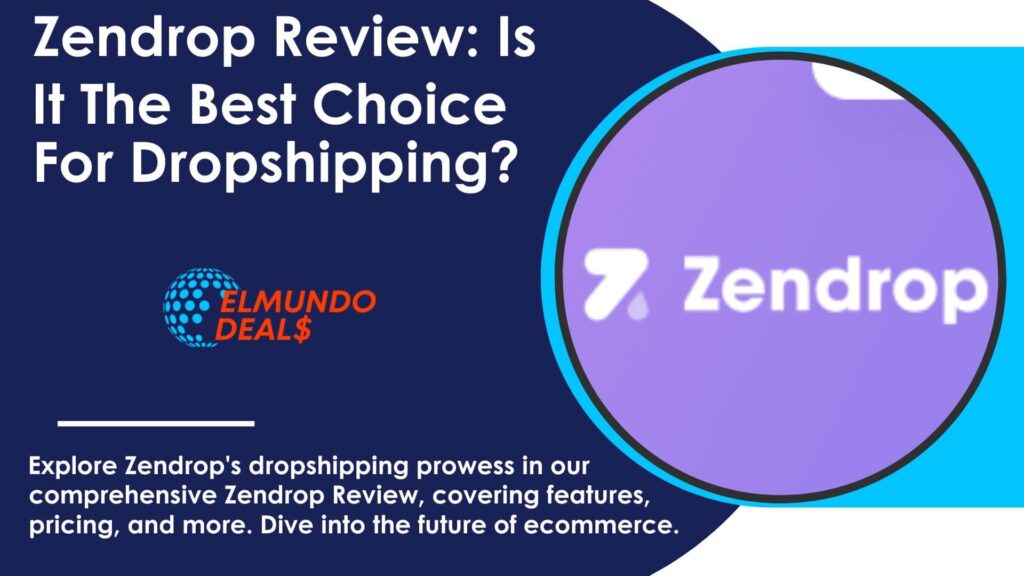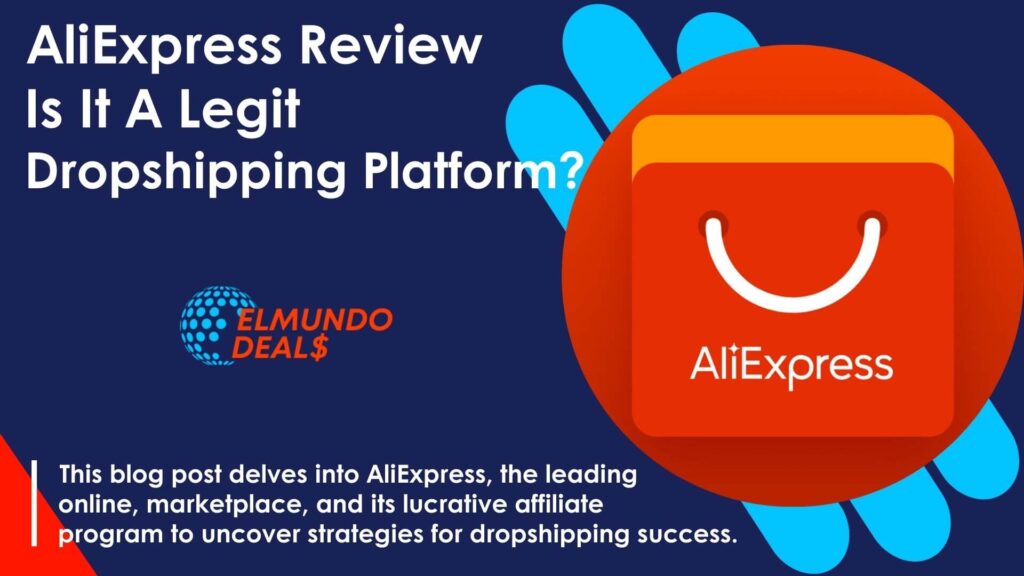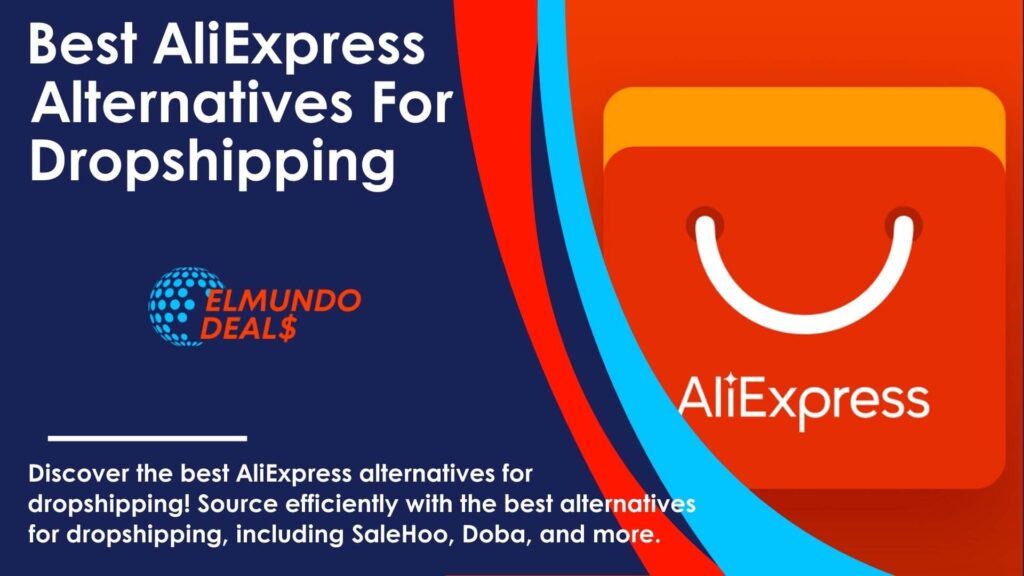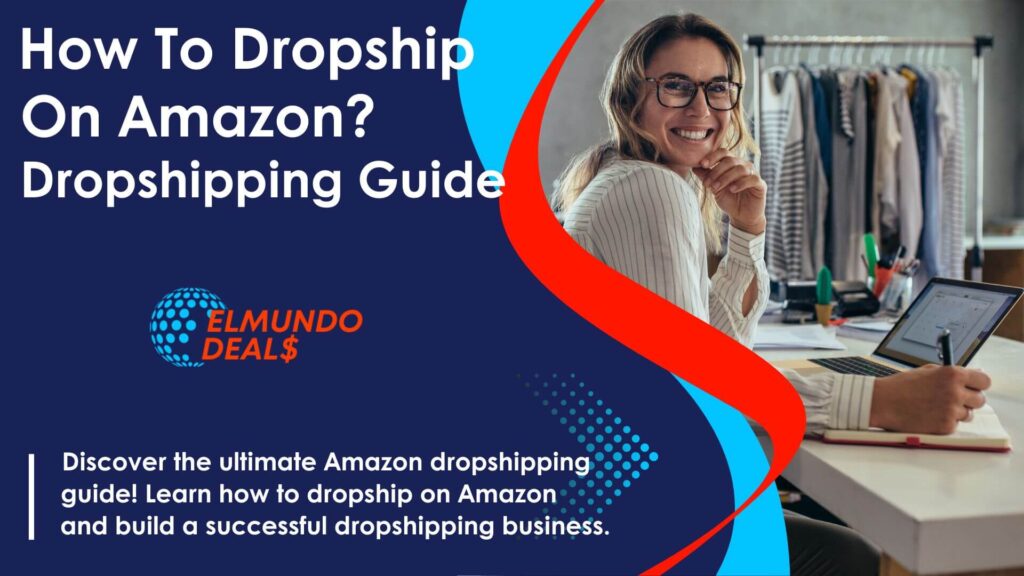How To Use Influencer Marketing To Grow Your Ecommerce Business – Marketing Strategies
In recent years, influencer marketing has become a highly effective marketing strategy for businesses to reach their target audience and drive sales. As e-commerce continues its exponential growth, this tactic has emerged as an essential asset for online retailers seeking to gain customer credibility and trust.
Partnering with influencers can provide access to their loyal followers, who can enlighten customers on the brand’s identity, thus motivating them towards purchase decisions through various channels such as social media platforms or email campaigns.
Notwithstanding any misconceptions surrounding the effectiveness of such strategies in e-commerce, however, it is still possible for business owners interested in leveraging this approach – guided by well-researched statistics and data – could enhance the success rate of their purchases while creating a more compelling experience along each customer journey.
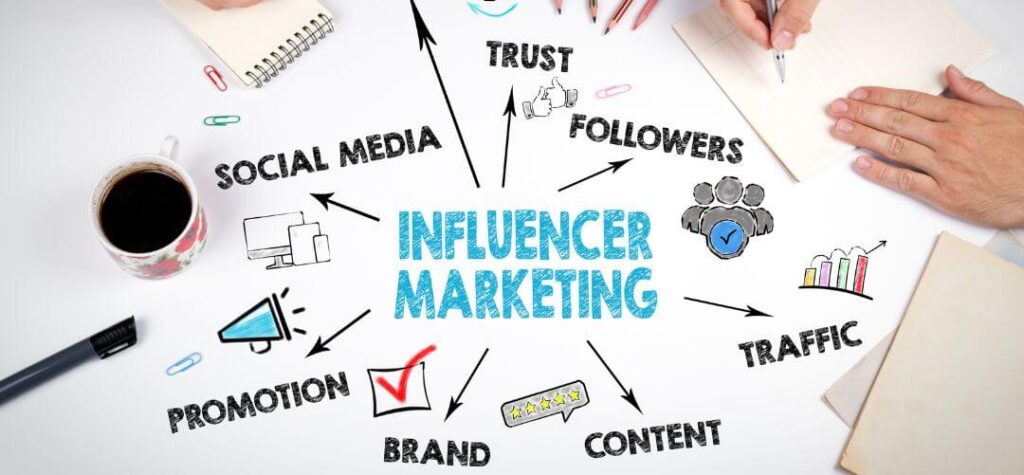
1. Finding the right influencers
Finding the right influencer is crucial to a successful influencer marketing campaign. Choosing the perfect one from a sea of profiles can be challenging. To begin, identify your target audience and the social media platform where they are most active.
Look for influencers with a similar target audience and an above-par engagement rate that aligns with your business goals. By analysing their previous content, ensure that their content and values align with your brand messaging.
Micro and nano-influencers with smaller followings but higher engagement rates are becoming increasingly popular for e-commerce brands.
They can help you reach a highly targeted audience and have a more authentic relationship with their followers. Consider building a long-term partnership with potential influencers to create significant brand awareness and trust.
Lastly, be transparent with your goals and expectations from the influencer, including the content they should create, the timeline, and any incentives such as discounts or commissions.
Use social listening and tools like BuzzSumo, Upfluence, and Awario to find noteworthy creators to build your influencer marketing campaign.
2. Focus on micro and nano influencers
Concerning influencer marketing, there are several tiers that an enterprise can utilize. The more prominent personalities may not necessarily be the most effective for your brand. Instead, micro and nano influencers should be considered.
These individuals have between 1,000-100,000 followers on average – though they can have even fewer! Despite this lack of reach being comparable with a mega-influencer’s following, their level of engagement and devotion towards their respective brands make them an ideal choice.
Collaborating with micro and nano influencers can be profitable for e-commerce brands, as they have smaller followings that allow them to generate highly-targeted content.
These influencers often provide an authentic voice while increasing brand recognition among the target audience. Additionally, startups and small businesses seeking expansion may find these individuals more receptive than larger companies focused solely on their growth of follower numbers.
Connecting with micro and nano influencers can be a highly effective strategy for reaching out to a specific community based on location, demographics or preferences.
For example, if you wish to expand your presence in an area of particular interest, partnering with a locality-based micro-influencer may provide more fruitful outcomes than engaging with mega figures whose messages tend to cater to much wider audiences.
When managing relationships with micro and nano influencers, ensuring that their principles and content conform to your brand is essential.
Providing them with clear guidelines regarding the specifications for what they share will have a positive effect, and offering incentives such as discounted codes or exclusive deals can increase their content’s visibility in reach and engagement.
Using micro- and nano-influencers to market e-commerce enterprises is a highly effective brand strategy. Their followers are intensely devoted and have an affinity for their brand, making them an ideal partner in bringing a more authentic voice to the table.
When working with them, content standards must be adhered to, as well as any incentives provided so they achieve maximum impact on your target audience.
Related Blog Posts:
- How To Fund Your Ecommerce Businesses In 2023: 5 Best Options
- How To Drive Traffic To Your Ecommerce Store: 10 Proven Ways
- Inbound Marketing For Ecommerce – 11 Strategies & Complete Guide

3. Plan on building long-term partnerships
When it comes to influencer marketing, a long-term strategy can yield significant benefits for your business. Rather than engaging with an influencer for only one-time promotion, consider building up a lasting bond with them.
This endeavor can provide many advantages, such as fostering trust and credibility between the brand and its audience over time – which is advantageous when planning future campaigns!
Repeatedly collaborating with the same influential personality will also ensure greater consistency throughout your efforts to promote that particular brand or product line.
The influencer will be more acquainted with your brand’s values and messaging, ultimately resulting in content that aligns much closer to your overarching vision.
Moreover, long-term partnerships with such individuals can be a cost-effective marketing strategy – rather than constantly seeking out new influencers for deals and renewals of contracts, an enduring relationship allows for optimization through the time of efficiency along with eventual financial savings.
When undertaking social media campaigns, it is imperative to remember that algorithms demand a constant supply of quality content; thus, it is crucial to maintain consistency via partnering up over extended periods with an individual who shares the same interests!
4. Strive for authenticity
Authenticity is crucial in influencer marketing. Today’s savvy consumers can easily spot if a post or video is purely a paid promotion. To ensure authenticity in your influencer partnerships, working with influencers who share the same values as your brand and are genuinely interested in what you have to offer is essential.
Another way to ensure authenticity is to give influencers creative control over their content. Let them develop ideas that fit their style and audience while staying true to your brand’s messaging. It will result in more genuine content and resonate better with their followers.
Additionally, it’s crucial to be transparent about your influencer partnerships. Make sure that sponsored posts are clearly labeled as such. By being upfront about your partnerships, you can demonstrate that you value transparency and honesty in your marketing efforts.
When collaborating with influencers, avoid forcing sponsor placements. Find influencers who can extensively talk about your products from their unique perspective and showcase the best features of your products.
The best influencers would be those genuinely passionate about your industry or products who can create genuine content that resonates with their followers.
Authenticity in influencer marketing is vital for building trust and credibility with your audience. Work with influencers who share your values, give them creative control, and be transparent about your partnerships.


5. Run multiple campaigns
Running multiple campaigns is an effective way to connect with your target audience and cultivate a thriving brand via influencer marketing. You can utilize seven distinct strategies for running campaigns with influencers, each offering unique advantages for success. Let us take a look at some of the most effective strategies:
· Paid content
In this case, you pay an influencer to create content promoting your brand or product. It could include sponsored blog posts, videos, or social media posts. Ensure that the content aligns with your brand values and is high-quality.
· Gifting a product in exchange for mention
It is one of the simplest and most effective ways to work with influencers. You gift them your product in exchange for a mention on their social media channels.
It generates buzz and gets your product in front of new audiences. Choose influencers who are a good fit for your brand and genuinely interested in your products.
· Collaborating to create content
Collaborating with influencers to create content can be a great way to create authentic and engaging content that resonates with your audience. It could include creating a sponsored blog post, video, or social media campaign together. Ensure that the content is a good fit for your and the influencer’s brands.
· Affiliate marketing
It is a performance-based marketing strategy where you pay influencers a commission for any sales they generate. It incentivizes influencers to promote your products, and they only get paid if they successfully drive sales. Clearly communicate the commission structure and other terms and conditions.
· Working with an influencer to co-create a product
Working with an influencer to co-create a product can be a great way to leverage their expertise and creative vision. It could include collaborating on a limited edition product or a product bundle. Ensure the product aligns with your brand values and resonates with your target audience.
· Account takeovers for a day
In this case, you give influencers access to your brand’s social media account for a day. They create content and engage with your audience on your behalf. It can be a great way to showcase your brand in a new and creative way and generate buzz around a specific campaign or event.
· Live shopping
The popularity of live shopping is rising at an astonishing rate. By 2022, this e-commerce format was generating over $500 billion in sales – not just because influencers are everywhere! Through these influential personalities and the allure of interactivity, consumers enjoy a fresh shopping experience that inspires confidence and drives sales.
This trend has been particularly prevalent during the pandemic era; however, it’s become more prominent recently with each passing year. Hosting real-time video broadcasts to showcase products or services provides an immersive entry point for brands.
Combined with features like chatrooms or Q&A segments on social media platforms (like Facebook Live), creating compelling marketing content becomes more accessible than ever before!
In addition to generating online revenue streams, this type of retail also builds trust among customers as they can easily view product demonstrations while conversing with hosts who provide insightful information about available selections.
Ultimately leading towards greater confidence in purchasing decisions – ultimately resulting in increased online commerce revenues down the road!
6. Measure the ROI Success of Influencer Marketing for Ecommerce

Measuring the return on investment (ROI) of influencer marketing for e-commerce is essential to gauge success.
Numerous metrics must be taken into consideration, such as engagement rate, click-through rate and conversion rates, among others, all of which can be tracked to determine which influencers and platforms offer optimum results.
Depending upon these figures, marketing strategy adjustments may need to be made. Assessing the return on investment for an influencer campaign is paramount,
.
necessitating setting attainable goals and objectives. Are you searching for increased brand recognition?
Boosting website traffic and impressing purchasers with sales numbers? Crafting specific qualitative or quantitative targets will provide a more precise benchmark for assessing success.
Moreover, it is essential to track metrics beyond sales. Influencer marketing can contribute to brand loyalty and bolster the overall perception of one’s brand.
Therefore, it is imperative that you consider factors such as follower growth rate, sentiment analysis and quality of content when assessing the success of your influencer marketing efforts.
Learn More:
- How To Sell Your Ecommerce Business In 2023 For Maximum Value
- How To Write An Ecommerce Business Plan For Your Startup – Template
- 15 Best Ecommerce Platforms For 2023 & Beyond – Rated & Compared
What is social media influencer marketing?
Influencer marketing is a technique that harnesses the influence of social media influencers to promote products or services. These individuals are considered authorities within their field and possess an extensive following on platforms such as Instagram, YouTube, Twitter or TikTok; followers trust their recommendations and judgements.
The aim is to leverage their credibility to boost brand recognition and generate website traffic, leading to eventual sales increases. Recently, social media influencer marketing has emerged as one of the most effective strategies for reaching a targeted audience and fostering brand loyalty.
This approach can be precious when paired with other marketing tactics. It involves partnering with influential individuals who can influence their followers’ actions.
In return for promoting or endorsing a product, they carry out some form of compensation, such as monetary remuneration or recognition. Thus, ensuring that their audiences purchase merchandise from the manufacturer – effectively making an impact on sales!
Why Is Influencer Marketing Effective for Ecommerce Store?
Partnering with social media influencers can be an excellent way for e-commerce stores to leverage their credibility and expand their reach. Influencers have a sizeable following across platforms like Instagram, YouTube, Twitter or TikTok; followers trust their opinions and are more likely to purchase products they recommend.
By working with influencers who specialize in promoting their wares or services – through collaboration that genuinely feels like one-on-one communication – retailers can better connect with potential customers while building brand loyalty.
Furthermore, this marketing strategy has been shown to be effective at reaching younger generations accustomed to social media, where advertising techniques may be less effective than those employed by traditional industries.
Influencer Marketing vs. Content Marketing

Influencer marketing and content creation are among the most prominent digital marketing strategies. While content creation seeks to create and disseminate valuable contributions to attract potential customers and engage them, influencer marketing entails partnering with social media influencers to promote products or services.
While these approaches possess distinct differences – for instance, involving different party players creating the content – they can complement one another when it comes down to fulfilling brand objectives.
Those that seek a greater outreach of audience comprehension, as well as sales, could benefit from employing both methods while others may only be more effective using one over the other.
Ultimately, any strategy must be based on individual needs such as goals & target audiences; some brands may find success utilizing both approaches while others might solely focus on either!
How To find the Right Influencers To Grow Your E-commerce Business
To stimulate e-commerce growth, selecting influencers is a noteworthy venture. To help you find the ideal partners for your brand, here are some pointers on how to identify suitable influencers:
1. Determine your target audience: Before you head out to scour the influencer landscape, it is crucial that you know precisely who your ideal customer profile is. It will enable you to identify influencers whose fan bases match those specifications!
2. Look for influencers in your niche: Utilizing influencers in your niche is crucial for success. You want to collaborate with personalities well-versed in your industry and cultivate an audience that coincides with your brand.
3. Use influencer marketing platforms: A plethora of platforms are accessible for you to explore, enabling you to locate suitable influencers based on criteria like niche and geography.
4. Check social media: Searching for influencers on social media platforms such as Instagram and TikTok can be invaluable when sourcing content. Utilize relevant hashtags and search terms to locate influencers already engaged in conversations related to your industry or products.
5. Evaluate the influencer’s engagement: It is critical to assess the level of engagement exhibited by an influencer when vetting prospective business partners. Examine their likes, retweets, and shares to determine how deeply engaged their followers are.
Utilize these recommendations to identify the most qualified influencers for your e-commerce venture and engage with your desired audience.
Types of Influencers for Ecommerce
For those seeking to leverage the power of influencer marketing, one can partner with numerous categories of influential figures. These include:
- Mega-Influencers: These top-tier influencers boast an impressive fan base, with numbers often exceeding millions.
- Macro-Influencers: These thought leaders typically boast tens of thousands of followers and possess a suitable degree of accessibility while remaining reasonably cost-effective.
- Micro-Influencers: These are influencers with a comparatively smaller audience, typically ranging from 1,000 to 10,000, but exert exceptionally significant influence among their fans.
- Nano-Influencers: These influencers possess a minuscule number of followers, typically below 1,000. They can be highly beneficial to niche or localized marketing efforts.
- Celebrity Influencers: These celebrities are widely recognized figures, such as actors or musicians, who can command a high fee but provide immense reach and publicity.
Selecting the most appropriate type of influencer for your e-commerce enterprise will be contingent upon determining its desired end goals, target market, and budgetary constraints.
The Three Methods You Could Follow to Run an Influencer Marketing Campaign
Are you pondering launching an influencer marketing initiative for your business but need help determining the correct course of action? Three possible approaches can help get it off to a running start:
1. The Organic Method: Through cultivating connections with influencers, you can leverage their reach and draw potential customers to your brand. To do so effectively, it’s essential that you identify influential figures within your niche and forge lasting relationships on social media; crafting captivating content should be the cherry on top!
2. Using Platforms: Influencer marketing platforms exist that can aid you in identifying and cultivating relationships with influencers. Such platforms often possess databases containing information about potential collaborators, making it easy for users to filter them by particular niches, audience size or engagement rate. Popular options include Aspire, Upfluence, and Grin.
3. Outsourcing to Influencer Agencies: If you lack the time or resources to manage influencer marketing initiatives independently, you can outsource them to an agency. These organizations possess a network of influencers they collaborate with and can facilitate everything from campaign planning to selecting and managing those contributors. Amongst energetic agencies such as Viral Nation, Influencer.co; or Obviously – all are popular choices for this endeavor!
Use Influencer Marketing for E-Commerce: Best Marketing Tools to Help Grow Your Brand
1. SwayPay
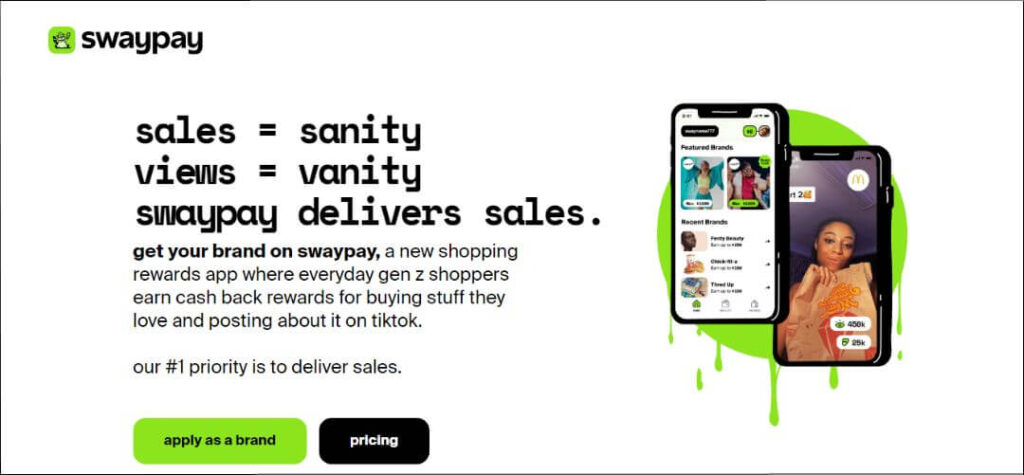
SwayPay is an innovative influencer marketing platform that offers a unique approach to the traditional model. Unlike other platforms, SwayPay offers discounted rates for influencer promotion, which can offset added costs like shipping, tax, and fees. It makes it more accessible for influencers to promote products and incentivizes customers to purchase them.
The app offers a simplified payment option that tailors itself to consumer needs. As users browse online stores, they see special SwayPay pricing on products. They will be asked to add their Instagram account handle when they purchase a product.
Adding this information lets them know what discounts they may be eligible for and how many Instagram posts will be required to earn the discount. A user’s “sway” determines their discounts, which means the more followers they have, the less they have to pay.
This ensures the posts you are trading for will benefit your business, not simply fade into the social sphere. In the SwayPay checkout, the user will pay the full dollar amount of the product without the discount. Then, they have 30 days to make the required posts and keep their discount.
It means a shopper could pay for a $150 item with $90 and two Instagram posts. SwayPay requires shoppers to tag them in each post, so compliance is mandated.
For businesses, this system opens up a range of new conversion opportunities. Customers are now incentivized to complete their purchases and engage in online marketing of the product.
The SwayPay app boasts that their retailers receive twice the number of branded Instagram posts, 17% engagement increases on SwayPay posts, and up to 13% of all processed sales through their app. This data can be used to optimize future campaigns and ensure maximum ROI.
Currently, the app only works with Shopify and Instagram. However, SwayPay plans to branch out in the coming quarters and integrate its platform with TikTok and BigCommerce.
SwayPay also plans to introduce more ways to sway, such as a SwayScore that would score user purchases and reward them with extra discounts or prizes. They also plan to implement a Live Receipt feature to let users generate sales more directly through affiliate payments.
At the moment, SwayPay offers the best ease and accessibility for consumers. Seeing the discount at point-of-purchase and a clear and direct promotion task is unique, and if their strategy works out, it will help brands connect with influencers more often and efficiently.
SwayPay is an excellent option for businesses looking to expand their reach and drive sales through influencer marketing.
2. Dealspotr’s Influencer Marketplace

Dealspotr’s Influencer Marketplace is an online platform that serves as a hub for influencers and brands. They offer a variety of services, including promotional fee campaigns and free product campaigns, allowing brands to tailor their approach based on their goals and target audience.
Unlike SwayPay, however, Dealspotr does not offer a point-of-sale option. Therefore, customers must find a workaround to apply the discounts offered on the platform to their orders.
Dealspotr boasts over 15,000 influencers across different categories, making it easy for businesses to find the right match for their brand. Their platform emphasizes authenticity and transparency, requiring influencers to disclose sponsored content and provide authentic reviews of products.
It helps build consumer trust and ensures influencer campaigns effectively drive sales. Businesses can fund their campaigns with any budget, but Dealspotr recommends a minimum of $100 for small to medium-sized influencers.
The platform also provides various tools to help businesses manage their campaigns, including an influencer CRM, campaign tracking, and reporting. Overall, Dealspotr’s Influencer Marketplace provides businesses with a straightforward and efficient approach to influencer marketing.
With their emphasis on authenticity and transparency, brands can expect to see a positive impact on their sales while also building trust with their target audience.
3. Heepsy
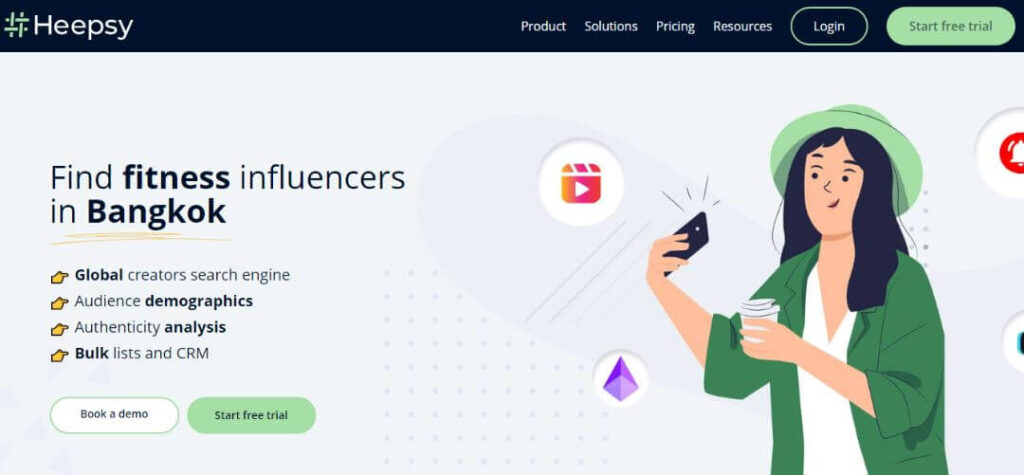
Heepsy is a resource for branding executives looking to connect with over 11 million influencers across social media platforms like Instagram, TikTok, Twitter and Facebook.
Unlike other services that provide access to various data about influencers, Heepsy provides users with a wealth of information, including insights into their audience engagement rates as well as an ‘authenticity score’.
Heepsy can help businesses manage their influencer campaigns more effectively by providing comprehensive services. Brands can use the platform to create influencer lists and ensure that they have authentic followers, monitor campaign results, and easily gauge their initiatives’ efficacy.
Overall, Heepsy is an upfront and efficient platform for businesses seeking the most relevant influencers to promote their brands.
With its colossal repository of influential individuals, detailed analytics and robust campaign management tools available within the app-enabled experience, it is effortless to sync with suitable influencers to propel sales via influencer marketing.
4. Shopify
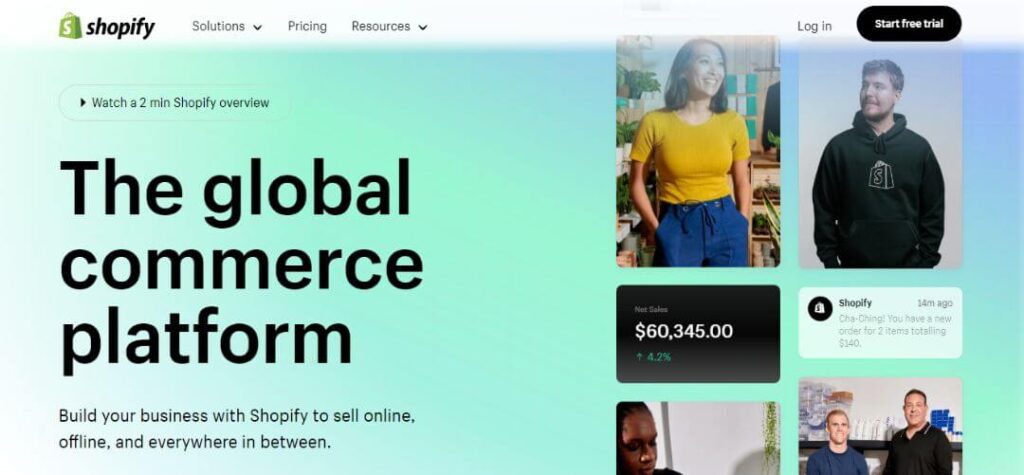
Shopify, a pioneer in the e-commerce industry, provides enterprises with group discounts for marketing purposes through its influencer program.
This feature allows businesses to create customized rates for their influencer community by utilizing a code that obligates them to remit an agreed-upon commission on any purchases made using it.
You can bolster the security of your discounts by enlisting influencers to target a specific customer group. Shopify does not provide the same functionality as rival services, but it remains an excellent choice for anyone already using their account with Shopify.
Shopify offers a suite of integrative services that help businesses leverage leading influencer marketing platforms such as Carro and Foursixty, all while providing metrics to measure the success of campaigns.
Moreover, the platform boasts tools to aid in establishing an effective brand presence across multiple channels, resulting in increased consumer loyalty along with eventual revenue growth.
Future trends and innovations in influencer marketing
As the influence marketing industry expands, we anticipate some enticing developments in the not-so-distant future. One such trend is harnessing micro-influencers – those with a more limited reach yet robust levels of engagement.
Moreover, virtual influencers are booming in popularity, enabling brands to craft bespoke messaging and campaigns. Advanced metrics and analytics tools will become more prevalent, helping firms gauge the impact of their endeavors.
Moreover, we can anticipate the emergence of more sophisticated AI-driven tools that will assist brands in identifying optimal influencers for their promotions. In general, the future of influencer marketing looks hopeful, with new opportunities and innovations on the horizon.
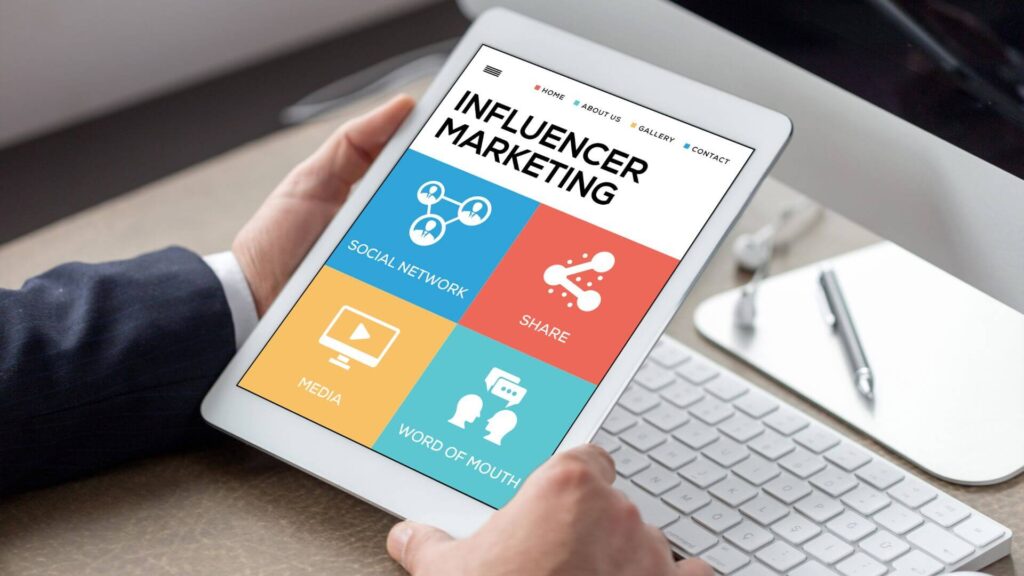

FAQs On Ecommerce Influencer Marketing
· What is influencer marketing in eCommerce?
Influencer marketing in eCommerce involves partnering with social media influencers to promote your brand or products to their followers. This type of marketing can increase brand awareness, build credibility, and drive sales.
· Does influencer marketing work for eCommerce?
Yes, influencer marketing can be effective for eCommerce businesses, particularly those selling products in a niche market or with a specific target audience. When done correctly, influencer marketing can help drive traffic to your site and increase sales.
· How to use influencer marketing in eCommerce?
To use influencer marketing in eCommerce, you should identify relevant influencers in your industry, establish a partnership or collaboration, and create content that aligns with your brand and resonates with your target audience.
· What Types of Influencers Should You Trust?
When choosing influencers to work with, it’s important to consider factors such as their engagement rate, authenticity, and relevance to your brand and audience. Micro-influencers and nano-influencers can be effective, as they often have more engaged audiences and can be more affordable.
· Why Businesses Rely on Influencer Marketing?
Businesses, rely on influencer marketing because it can effectively reach a specific target audience and build trust with potential customers. Influencers have established relationships with their followers and can help increase brand credibility and awareness.
· Why influencer marketing for ecommerce brands work?
Influencer marketing for eCommerce brands can be effective because it helps increase visibility and reach among potential customers. Influencers can create engaging content that showcases your products authentically, which can help increase conversions and drive sales.
Conclusion – How To Use Influecer To Grow Your Ecommerce Business
Influencer marketing has become an indispensable aspect of eCommerce strategies. The utilization of influencers can help increase brand recognition and generate sales for companies; by utilizing the appropriate influencers in conjunction with a cohesive plan, brands can see impressive returns on their investment in this space.
It is essential that organizations stay abreast with all the most recent trends and best practices associated with influencer marketing to ensure such campaigns reach their optimum potential!
A robust approach will grant them complete success while allowing businesses to assert themselves against saturated markets – inspiring long-term customer loyalty.
Also Check These:







